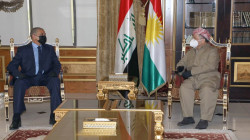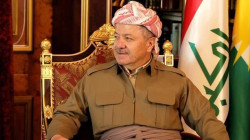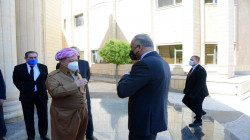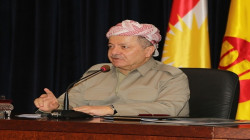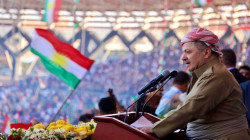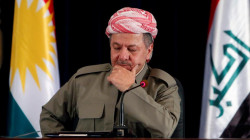Kurdish Leader Masoud Barzani Denounces Lausanne Agreement as the 'Beginning of a Dark Era' for the Kurdish People"
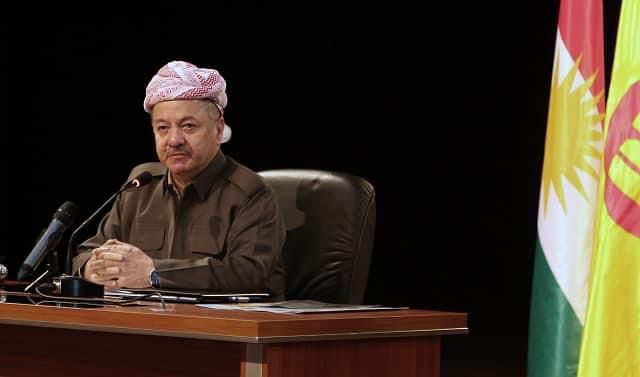
Shafaq News/ On Saturday, Kurdish leader Masoud Barzani asserted that the Kurdish people were the "primary victims" of the 1923 Lausanne Agreement, highlighting the "countless disasters, deprivation, and marginalization they have endured."
Speaking at the occasion of the first inaugural meeting of the Kurdistan National Confederation in Lausanne, Barzani emphasized that the agreement failed to respect the rights and will of the Kurdish people, whose roots trace back thousands of years in the Region.
"The Lausanne Agreement signifies oppression, deprivation, and the beginning of a dark era in Kurdish history," Barzani stated. He noted that while the Treaty of Sèvres, signed in August 1920, had granted the Kurds the right to independence, the Lausanne Agreement dashed those hopes and subjected them to the fate and laws of the divided countries where they resided.
Barzani lamented that the countries where Kurdistan was partitioned resorted to various methods to alter demographics and pursue policies of denial, suppression, and dissolution of the Kurdish people. Yet, "despite this oppression, the Kurdish people have persistently fought for their rights through revolution, uprisings, and protests across Kurdistan."
The Kurdish part incorporated into the Iraqi state faced particularly devastating tragedies. Barzani highlighted the Iraqi government's implementation of Arabization, deportation, Anfal campaigns, chemical attacks, and genocide as part of their efforts to dissolve the Kurdish people. Nevertheless, the people of Kurdistan and the Kurdish liberation movement courageously resisted these inhumane and racist policies.
While acknowledging that Iraq offered more opportunities for agreement and efforts to address the Kurdish issue than other countries, Barzani urged regional states and Kurdish parties to review their programs and strategies. He called for a democratic and peaceful solution, resolving problems based on their unique circumstances through dialogue and democratic means.
Barzani expressed satisfaction that the century-long conflict between regional governments and the Kurdish people did not escalate into an ethnic conflict. He emphasized that the Kurds have always found friends and sympathizers among the Region's peoples. The main challenge for the Kurdish people has been "oppressive regimes, policies, and dictatorship, rather than the countries themselves."
Barzani stressed that rectifying the negative consequences of the Lausanne Agreement and addressing mistakes is a shared responsibility among the Kurdish people, regional countries, influential international forces, non-governmental organizations, academic institutions, and international figures. He called for their participation in creating a democratic and peaceful framework.
Regarding the Kurdish diaspora, Barzani highlighted its crucial role in political, social, and academic circles abroad to raise awareness about the Kurdish issue, convey the truth, and defend the rights of the Kurdish people. He urged unity, partnership, and selflessness among the Kurdish community to prioritize Kurdistan above all other interests.
The Lausanne Agreement was signed on July 24, 1923, by Britain, France, Italy, Greece, Bulgaria, and Japan on one side and Turkey on the other. The agreement, consisting of 143 clauses, led to the formation of present-day Turkey after Mustafa Kemal's victory over Greek forces and his subsequent military strength, coupled with indirect political and diplomatic support from the Soviet Union. The Kurdish issue was excluded from the negotiations, agreement texts, and political relations, resulting in the division of Kurdistan into four parts.
